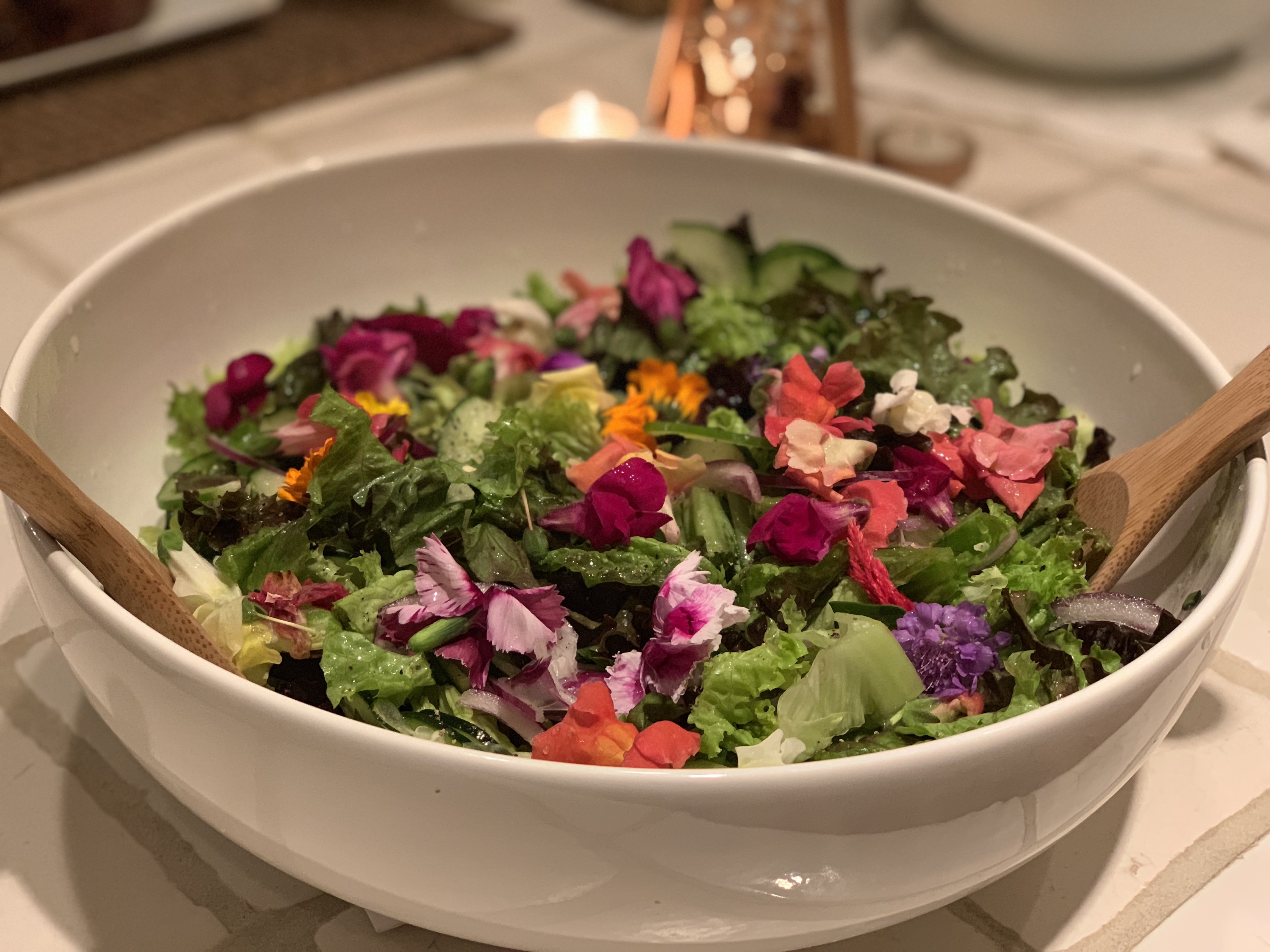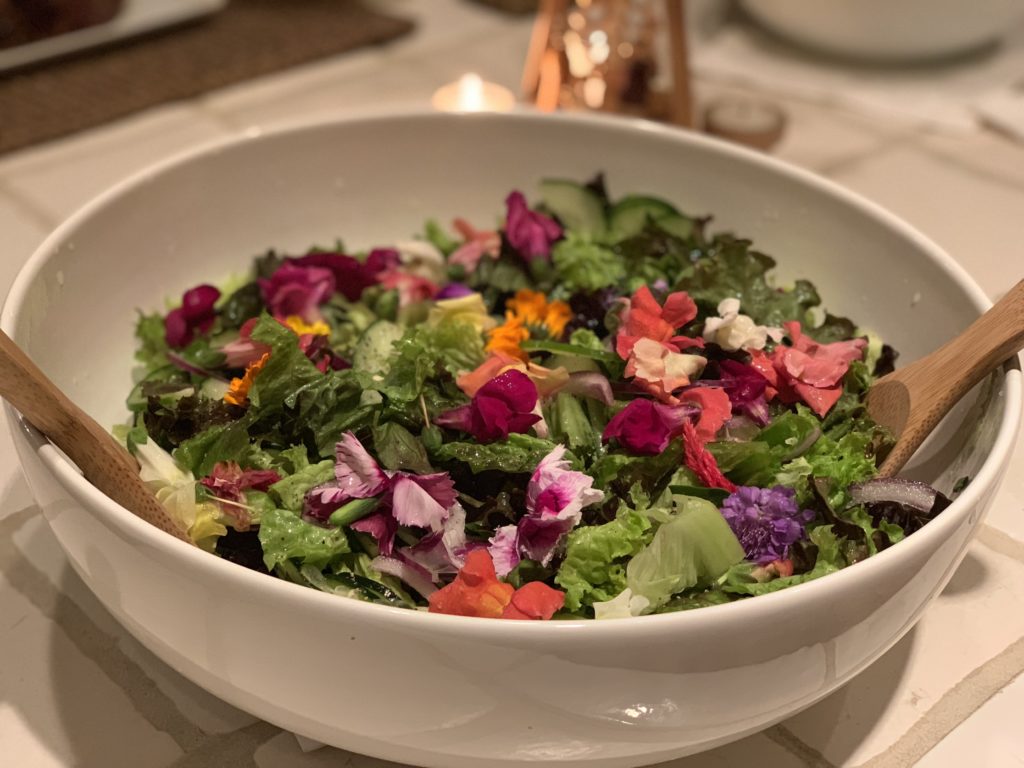
7 Steps to a Healthier Diet
September 11, 2019

Here are a few simple, but profound tricks I’ve learned along the way that drastically improved my health while also helping the planet. These steps will propel you along the journey of intuitive eating. I’ve broken them down into practical steps so that you can easily incorporate them into your routine!
First, a disclaimer, when I say diet I am not talking about dieting (which I do not recommend). I am talking about your overall nutrition – a.k.a. what foods you consume day-to-day that make up your overall diet.
1. Eat real food.
Whole foods include plenty of fresh fruits and vegetables, nuts, legumes, and grains, sustainably wild-caught fish, and pasture-based animal products such as eggs, meat, and dairy. Fermented foods are majorly beneficial! If you can begin incorporating just one fermented food into your daily meals, you will begin to reap massive benefits that go beyond digestion to mood, mental clarity, immunity, energy levels, and more. Also remember to eat the rainbow! All the different colors found in plant foods signify various compounds that are super healthful. Mix them all up! Minimize consumption of processed and refined foods. Start buying unrefined salt. If it comes in a bag or a box, think twice before buying it. If it comes in any form of plastic and there’s a plastic-free alternative, opt for the plastic-free option!
2. Prioritize local (and organic).
Buying local is sooo important. Supporting local businesses and farmers is an important way to engage in activism and creates more accountability for both producer and consumer. There’s a much smaller carbon footprint when food comes from a local source instead of being shipped from across the continent (or world). Organic is also really important in a time of widespread toxic pesticide use. Research the dirty dozen, a.k.a. foods treated with the highest levels of pesticides, and prioritize buying those organic when possible. Unfortunately, organic pesticides, herbicides, and fertilizers are becoming increasingly common and the term no longer means what it once did. There are toxic chemicals used in organic farming. This is why buying local and having a relationship with your local farmers is so important!
3. Hit up your local farmer’s market or sign up for a CSA!
Again, support farmers. They are working hard every single day to provide us with necessary nourishment, and trust me when I say they aren’t making a killing. Culturally we want food for the absolute lowest price, which is detrimental to farmers and has played a major role in the industrialization of agriculture. Go visit local farms, introduce yourself, ask for a tour, and volunteer! Even better, bring your family and friends! It’s so vital that we develop connections to where our food comes from. When you meet the animals and see how the crops themselves are grown, your understanding and appreciation for the food grows immensely. If you don’t know what a CSA is, it is essentially purchasing a specific dollar amount worth of food for a season and then receiving a weekly box of fresh produce or a certain share of an animal product.
4. Don’t restrict yourself from healthy foods that you love!
I am a strong believer in zero dieting, zero calorie restriction, and zero blame and guilt when it comes to our food choices. It’s important to not overeat and to learn your body’s cues that signal when it is full, but waaayyy too many people struggle with disordered eating and restriction in our culture (especially women). I believe that food is a form of love and restrictive mentalities around food can be seriously damaging. Fill yourself up with allll the good foods. When you’re focused on filling yourself up with all the good stuff, your cravings for processed junk that doesn’t make you feel good will slowly disappear. Treat yo self.
5. Pay attention to how you feel when consuming different foods.
I like to think of it as a science experiment. Remember learning the scientific method from middle school science class? That’s exactly how I approach my diet. I grew up with serious chronic digestive illness and disordered eating patterns. Learning to look at my diet and digestion as a lifelong experiment that is fun and enjoyable, was a powerful reframe. Notice when you feel full of energy and vitality or when you feel bloated and foggy. What was the last meal you ate?
6. Experiment cutting out common allergens and inflammatory foods.
Not everyone needs to be gluten free or dairy free or whatever free. But, it can be really helpful to try eliminating foods for 1-3 months, or longer, to see how it affects you. Did your energy levels change? Is your cycle more regular? Did your acne disappear? Is your hair growing faster? Do you generally feel better, worse, or the same? All kinds of crazy things can happen. Just remember to not get too obsessive and allow for life to get in the way.
7. Embrace your uniqueness.
Have you ever heard of the concept of bioindividuality? Each of us is influenced by a unique constellation of ancestry, genetic heritage, biochemical interactions, hormonal cycles, moods and thought patterns, lifestyles, stress levels, socioeconomic situations, geographic location, etc. There are so many factors playing into what foods we consume and how they interact in our bodies. NO ONE knows what the right food choices are for you, except for you. You are the ultimate authority on choosing what diet fulfills you, and this will likely change throughout your life. You do you.